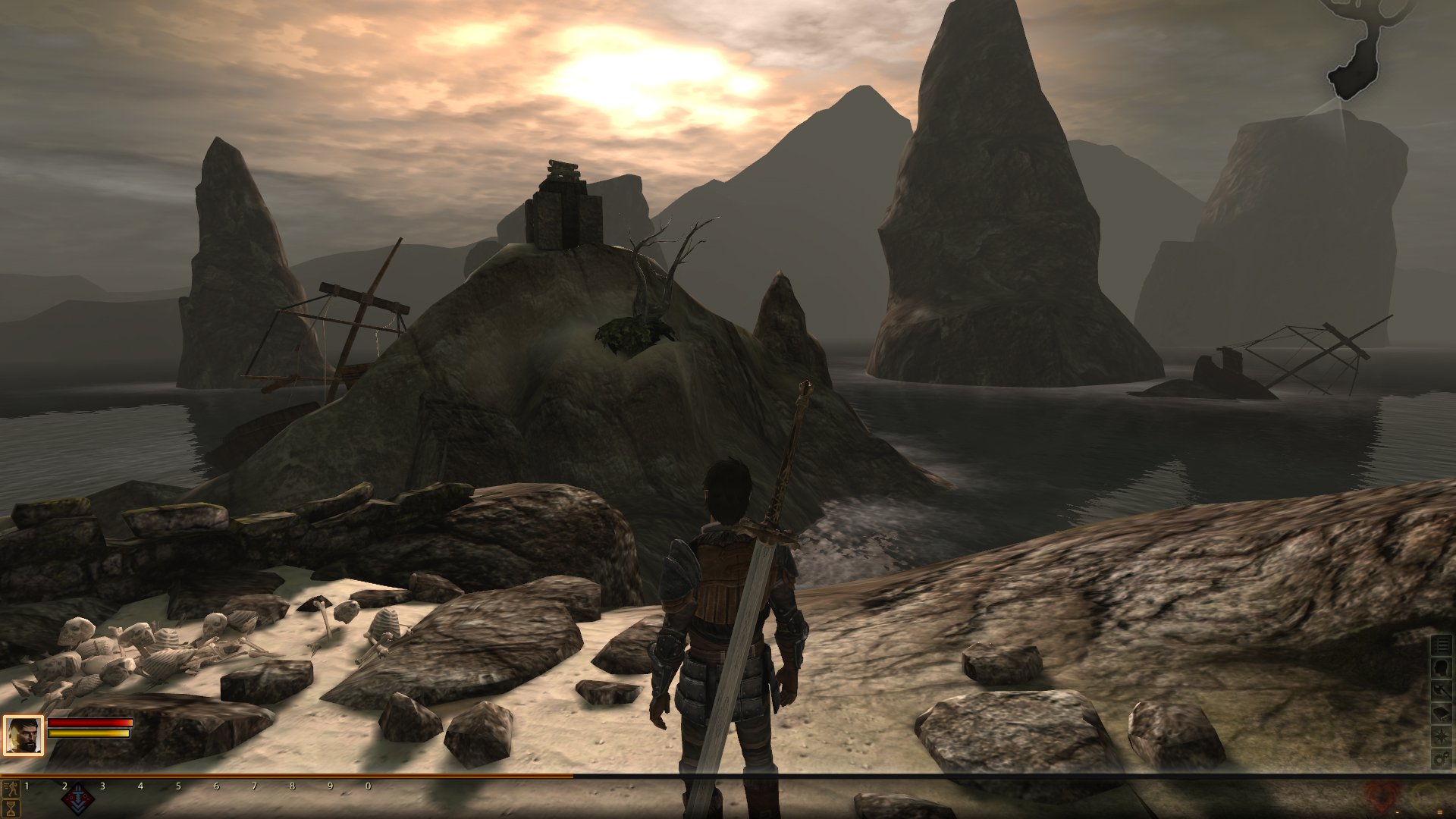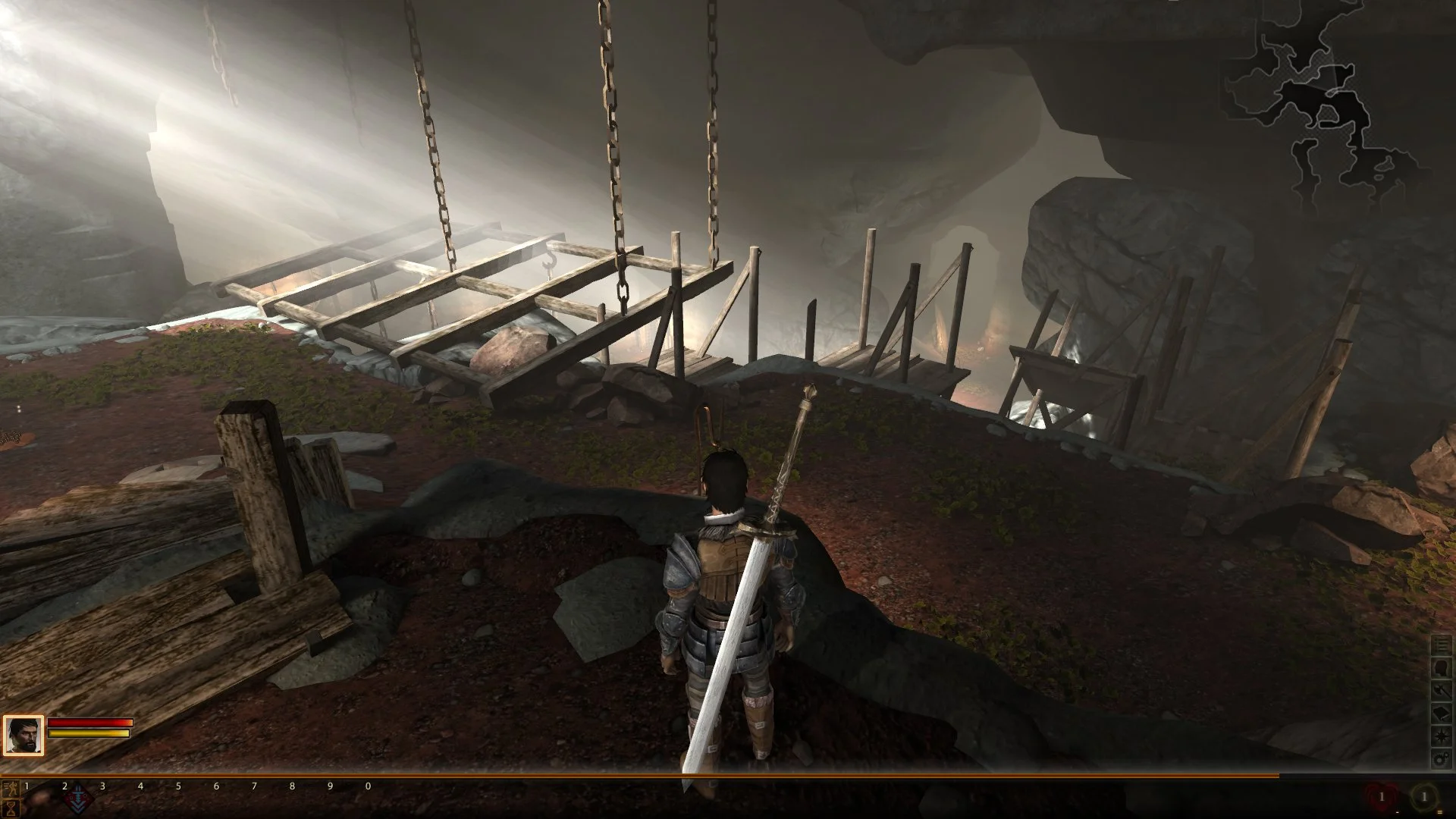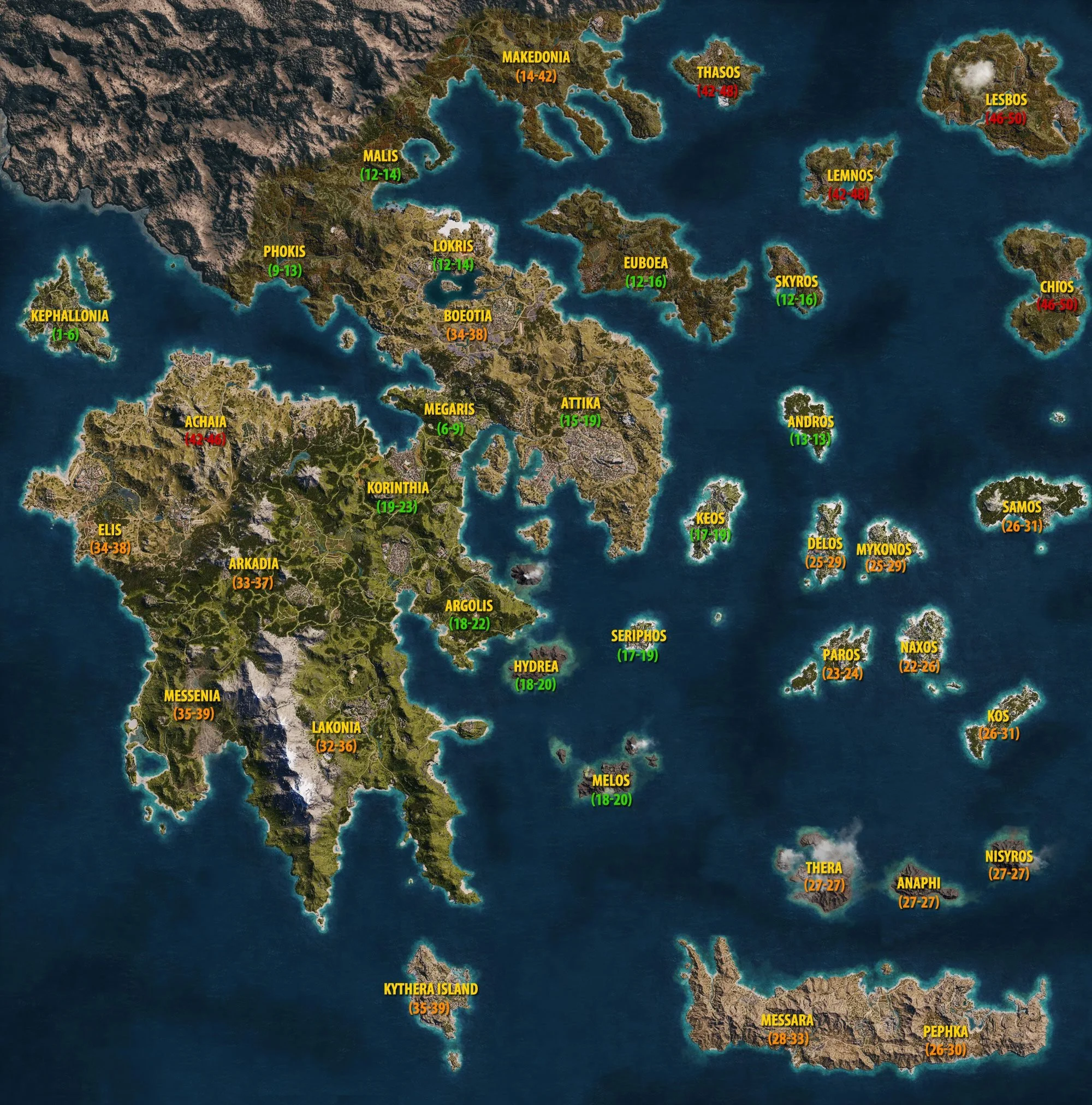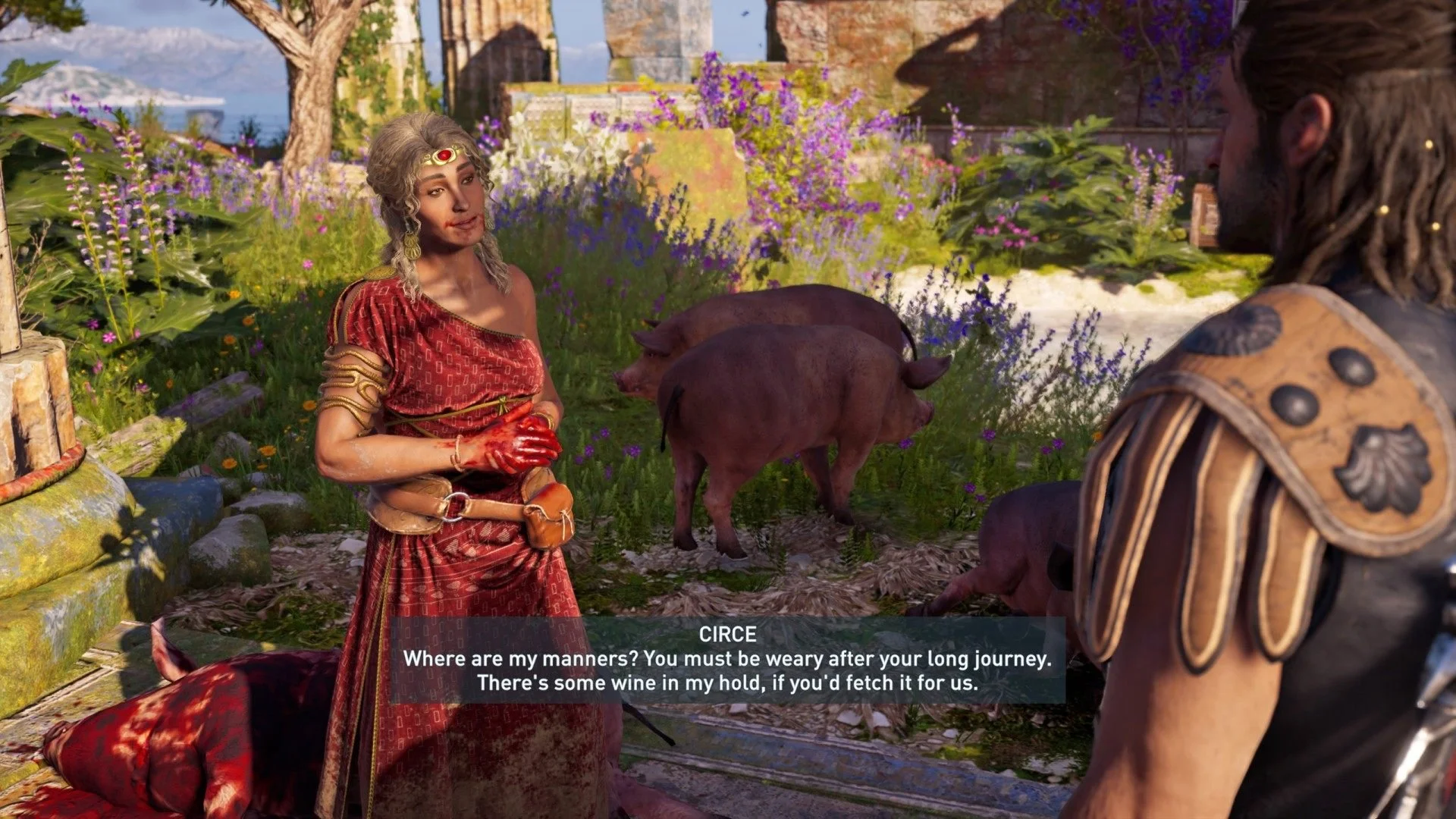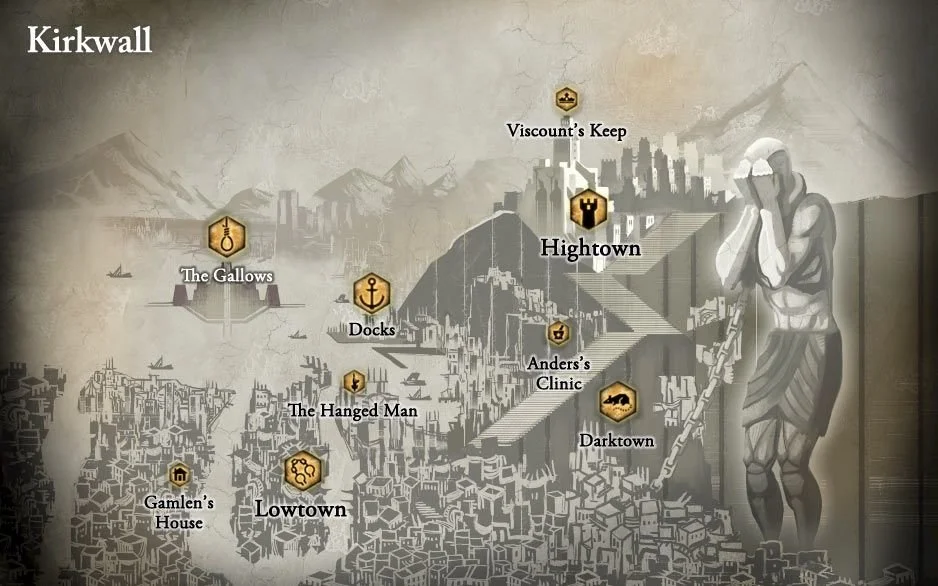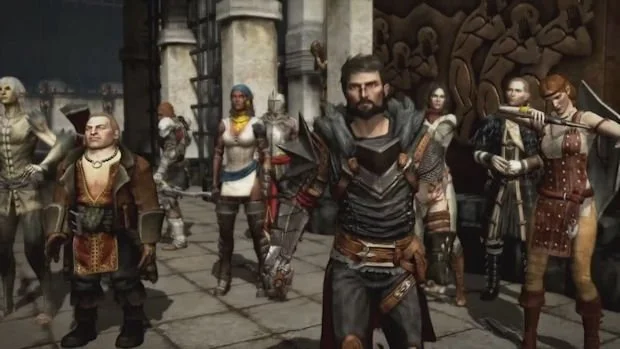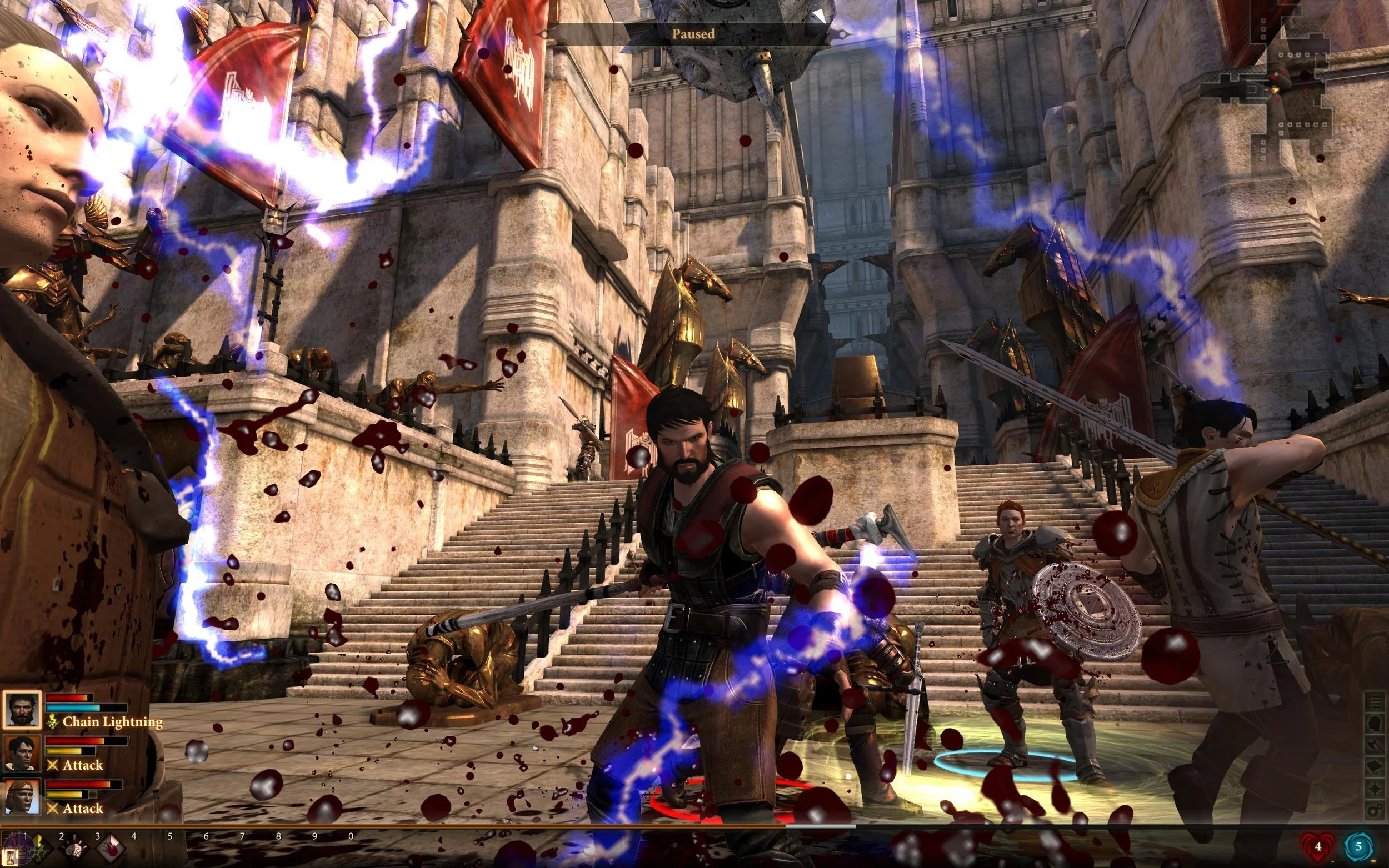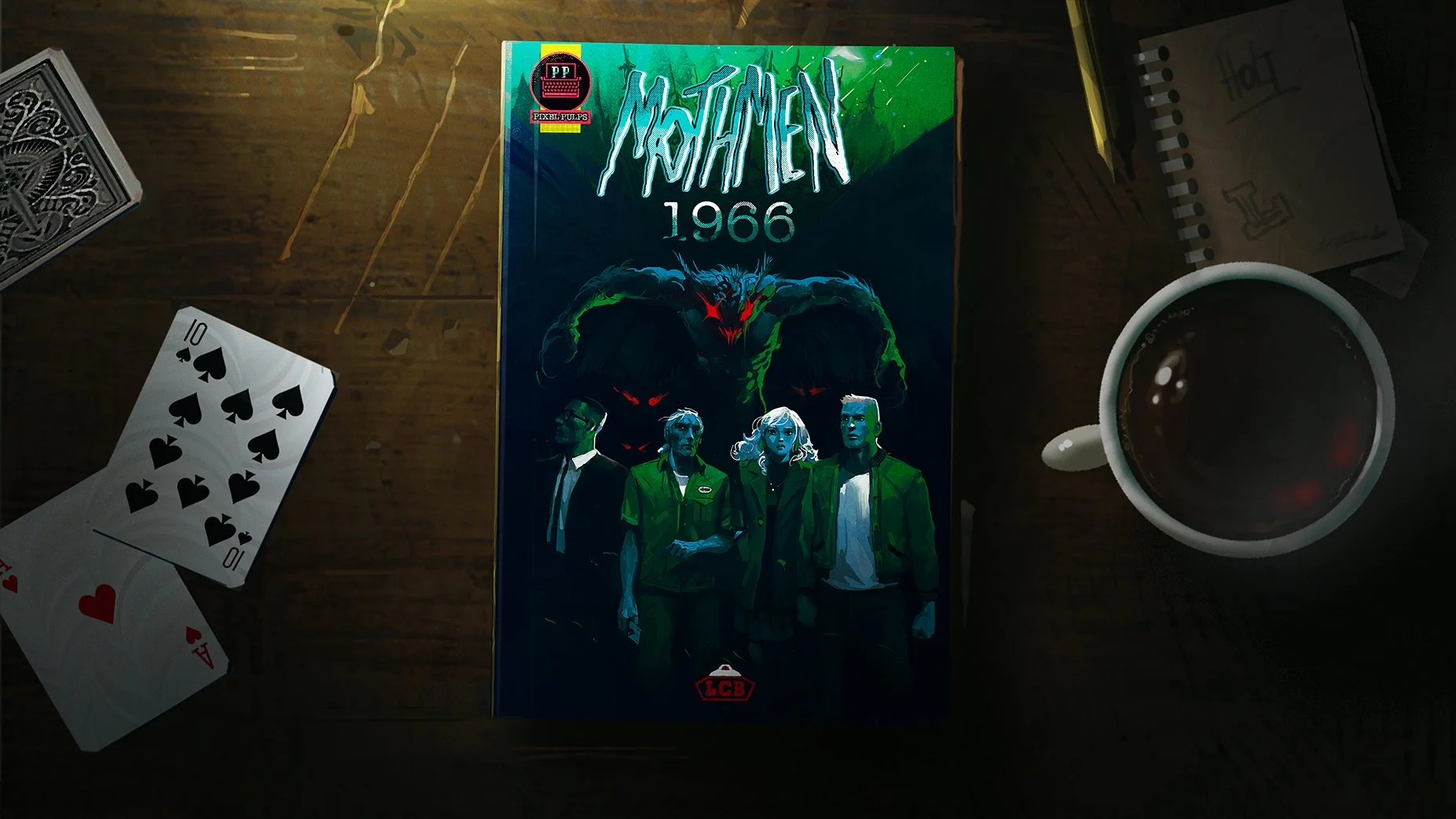Dragon Age 2 Isn't Too Short, Its Manageable
Dragon Age 2 and The Value Of Shorter Video Games
I wasn’t planning on writing about Dragon Age 2 when I started playing it. I wanted to go through the game at my own pace and be immersed in the story rather than having to view it through a critical eye, which I find tends to take me out of a story-based RPG. For most of my playthrough, that intention never wavered.
And then I finished it.
And as I sat there, listening to Florence and the Machine playing over the credits, having watched what is possibly one of the oddest endings to a video game I’ve ever seen, I realised something. At some point in the last couple of weeks, Dragon Age 2 has quietly taken up a spot in my heart as one of my favourite games of all time.
This is what led me here, sitting in front of my computer at 11 PM, somewhat sleep-deprived, trying to find a way to put into words why I love this game so much.
I feel like I have been here before…?
Going into DA2, everything I’d heard about it from other players was bad. The game was rushed through development, and it looks terrible, and the environments are recycled, and it’s too short, the game world is too small, and the missions are repetitive and on and on and on. After hearing all these complaints, I expected it would be my least favourite Dragon Age game. The only reason I was even playing it in the first place was so that I could move on to Dragon Age Inquisition with a game save that was my own, rather than the default you get should you skip a game.
Having now played it, I can say that most of those criticisms are actually perfectly fair. The game world is small compared to Inquisition (or even to Origins) and it is shorter in length than them as well. The environments are clearly recycled to an extent that comes very close to absurd by Act Three. It is hard not to smirk when you enter what is supposed to be a rebel mage hideout and recognise it as the smuggler’s den from the last quest… and the mines from Act Two, the Elven hunting grounds and a slaver hideout from Act One.
“Who do you think was hiding here?”
”I have no idea, everyone’s hidden den looks the same.”
But I wasn’t really bothered by any of that. A small amount of suspension of disbelief is all that’s required to get past the familiar environments, which we do plenty when playing procedurally generated dungeon crawlers anyway. The game is so short that they don’t repeat to an extent that’s unbearable.
So, I would like to make the case that sometimes, a smaller, denser game map can, rather than restricting the player, improve the game’s quality. It can even allow for a better story and a more streamlined, polished experience.
Oh btw, this map doesn’t even include the DLC landmass, you know the famous real Greek city… Atlantis.
For comparison, I would argue that 2018’s Assassin’s Creed Odyssey is a good example of the opposite; an RPG that sacrifices story and character in the name of a larger game world with more filler content. Its map was the largest in the series at the time, covering mainland Greece, Crete, and Macedonia, ranging from Sparta, to Athens, to Delos, to Lesbos. Odyssey attempts to tell a compelling, Ancient-Greek epic but, in my opinion, the sheer size of its map was directly responsible for its failure to do this.
Though the main story of Odyssey is long, it barely manages to bring the player to a quarter of the world available. Attempts are made to fill out the rest of the world by packing it with side quests, that, after a few hours, are unable to hide how simple, repetitive, and boring they really are. Endless fetch quests, escort missions, and go-here-and-kill-these-people objectives that have no real depth to them. And despite this gargantuan number of sidequests, the map is so big that it still manages to feel extremely barren, with large swathes of land in which you can do nothing but pass through. The towns, cities, and rural areas also all feel indistinguishable, I assume because there is more space to be filled than assets available.
The story and characters became entirely lost in the massive map. Even if you try to ignore this filler content you will encounter constant interruptions to the story due to having to grind through the side quests to level up your character. What is worse, these missions often take you miles from where the next main quest is, utterly wrecking the pacing, and (in my case) disconnecting the player from any urgency the campaign might have had. Many times, I found that upon returning to the main quest after levelling up, I’d completely forgotten the events of the previous story mission, and therefore had no idea why I was doing what I was now being told was vitally important.
“But first I am going to need you to go to a place, pick up a thing and probably kill some dudes, sound good?”
Side characters also become lost in the vast map; while some recurring figures like Alcibiades might make an impression, they appear far too infrequently compared to the never-ending torrent of side content and mission givers to hold any sort of complexity in their personalities or develop a relationship or rapport with the player. Other examples of games with this pitfall could include Mass Effect: Andromeda and Assassin’s Creed: Valhalla, both of which received many complaints in reviews about the unnecessary scale of their game maps. When RPGs encourage the player to spend more time doing filler content that doesn’t connect to the story, characters, or worldbuilding, the story is inevitably side-lined.
You will certainly get to know the city before the end of your time with the game.
On the other side of things, the small world of Dragon Age 2 is built for the story it’s trying to tell, which is not a sprawling epic about a quest to save the world like Origins and Inquisition. Instead, it is a small, political, family tale. I got to know Kirkwall and its inhabitants, and I think this familiarity added to the sense that this was my character’s home. I cared about the city, as she did. This smaller scale also gives the characters much more time to shine. Every character has layers, problems, and interesting motivations to get into. I love the fact that rather than tagging along because they have to, or because they want to save the world, Dragon Age 2’s companions feel like a group of friends stumbling their way from one encounter to the next and accidentally ending up in the middle of two major political crises. They follow Hawke because they like and respect them, not because they must.
A dysfunctional family and slightly more functional friends.
Origins and Inquisition each take place over one year, and so the character relationships don’t have the space to ebb and flow in the same way as the ones in Dragon Age 2, which takes place over a much longer time period. It is so satisfying to see Aveline and Isabela start getting along in Act Three after being at each other’s throats for most of Act Two, and heart-breaking to watch Anders and Fenris disliking each other more and more as the years go by. Small details that when put together, added so much more depth to the story. When I managed to keep everyone on my side in the end, it felt like a victory because I’d come to care about them all.
In addition, by including her family as such a present part of the game, my Hawke felt more like an actual inhabitant of the world. Because she had a very visible past that was actively affecting her in the present, she was more like Fenris, Isabella and Anders, rather than a disconnected spectre floating through the world and solving everyone else’s problems, as in Skyrim, Mass Effect or to a lesser extent, the other Dragon Age games.
The dialogue system adds a dynamic nature to the side characters. The fact that their dialogue changes depending on what personality Hawke takes means that not only are you familiar with them, but that they are familiar with you. For example, my Hawke was a sarcastic joker, and I loved whenever Aveline commented on her use of jokes to avoid problems, or when Merrill asked how she was able to brighten every situation with humour. The world actively changes in response to the decisions you make. With a larger map and more side characters, it would be much harder to develop for all these permutations and create the sense that the game world is developing around you and your decisions. Kirkwall’s intimacy and the strong presence of the side characters allow these small dialogue and scenery adjustments to give the story more depth.
Dragon Age 2 is a story that (unlike Origins and Inquisition) plays out like a tragedy. Everything that could go wrong, goes wrong. Hawke loses most of their family, most of the companion side quests end on a negative note, and the city spirals into a steep decline by Act Three. And then after all that, the final cutscene saw my Hawke and her companions have a standoff with the remaining Templars, each side nervously sizing up the other before they then slowly back away. And that was it. That was my ending. You don’t heroically charge in to win the mages their freedom, or try and save the world, you just react to a terrible situation and try to limit the damage. “Winning” is essentially just reducing the number of deaths.
You know, things could be going better…
I know other people will have had different experiences, but I liked this ending. It surprised me. I loved that there was no “big quest” to complete, that the story ended on a slightly bittersweet note. I loved how the main recurring theme seemed to be that sometimes things are just outside of your control, and you must deal with them as best you can. Perfectly mirroring the world it is set in, it is a small story. An intimate one, about family and friendship. Again, if this game had had a massive map with a huge epic plot, the story would have lost focus and these themes and characters would have been drowned in filler content. As it is, the pacing of the game is tightly controlled and extremely well done; the plot moves from one beat to another at exactly the right time while leaving just enough space for player choice.
Aside from DA2, games like Disco Elysium and the upcoming Pentiment are telling their stories in smaller, denser, and more contained maps, and if the reviews of Disco Elysium are anything to go by, people are beginning to appreciate these more intense and compelling small scale stories. The older and smaller Assassin’s Creed games were also able to create characters who I remain fond of years later, whilst I can barely remember the cast of Odyssey.
I am not, of course, arguing that all games should be reducing the size of their maps. For games in which a story is not a priority, it may make more sense for the world to be larger. Minecraft, for example, would hardly benefit from a smaller map. But, in a time when every game coming out is bigger, longer, and shinier than the last, I enjoyed going back to a shorter, tighter-paced, more succinct experience. Dragon Age 2 knew what it wanted the player to experience and delivered exactly that, no more and no less. And the result?
This is a game that I think will stay with me for a while.


